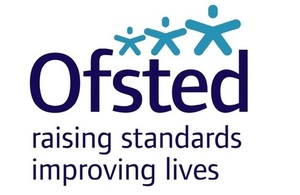América del sur/Argentina/Junio 2016/Autor y Fuente:http://eleco.com.ar/
Tras el debate que generó el anuncio de la reforma de las calificaciones en la escuela primaria, el jefe distrital de Educación de Tandil, Rodolfo Badin, brindó detalles sobre la implementación de esas modificaciones. Consideró que el cambio del modo de calificar apunta a “que el alumno se esfuerce un poco más”.
A partir de hoy, con el inicio del segundo trimestre, comienza a implementarse la nueva forma de calificar, que implicará volver a utilizar el desaprobado y sobresaliente en el primer ciclo de la educación (primer, segundo y tercer año) y los aplazos numéricos en segundo ciclo (cuarto, quinto y sexto año).
El jefe distrital de Educación, Rodolfo Badin, detalló que lo que se modifica es la Resolución 197 de 2016, la cual habla del régimen académico y sobre la forma de calificar. En el primer ciclo continúa siendo con letras pero se incorpora el desaprobado y el sobresaliente. En tanto, la de segundo ciclo seguirá siendo con números, pero incorporándose el 1, 2 y 3.
“En relación al primer ciclo, se sigue manteniendo el criterio de unidad pedagógica, como un único tramo de trayectoria escolar, que dura 6 trimestres y se van evaluando los logros que los alumnos van realizando y se va calificando trimestralmente, pero la aprobación de la unidad pedagógica va a ser recién al finalizar segundo año”, indicó.
Un mismo criterio :
Con el fin de comenzar a implementar el nuevo sistema en el segundo trimestre, durante las pasadas semanas se llevaron adelante las pertinentes reuniones regionales con los inspectores y luego cada jefe distrital se entrevistó con los directivos de las instituciones.
“Si bien es una nueva forma de evaluar, hay que tener en cuenta también cuáles son los criterios de los contenidos realmente enseñados, es decir qué se va a evaluar para colocar un 1, 2 o 3. Entonces, lo primero que pautamos a nivel distrital son los criterios que el alumno debe saber en un determinado año de contenidos para adecuar esta escala numérica”, enfatizó.
En ese marco, resaltó que “tienen que ser criterios lógicos porque cuando un papá venga a preguntar por qué su hijo no llegó al 7 hay que explicarle que todas las escuelas en el marco de calidad y equidad educativa, tenemos el mismo criterio”.
Esos criterios son determinados por los directivos con su personal, ya que cada institución elaborará un proyecto de evaluación basándose en el diseño curricular que es prescriptivo, y a partir de eso habrá que definir qué contenidos deberá alcanzar el alumno para estar aprobado.
Apuntando a la calidad:
Si bien Rodolfo Badin admitió que se trata de un cambio “de forma”, destacó que “apunta a la calidad y busca que haya cierta cantidad de contenidos enseñados y aprendidos. Va a requerir más esfuerzo de los alumnos, apuntando principalmente a la alfabetización, a la lectura y escritura”.
“Si bien suena fuerte un 1, 2 y 3, la realidad es que nadie va a querer sacar esa nota. Entonces se van a esforzar, y el mismo maestro va a mejorar sus estrategias para que los alumnos no se vean con una nota en rojo, como decíamos antes”, analizó.
En tanto, consideró que “los docentes hemos trabajado diferentes reformas educativas, diferentes formas de calificación y evaluación. Cada una de las formas de evaluar responde a un modelo político o a un paradigma vigente en educación. El anterior era un modelo de inclusión, con igualdad de oportunidades y en este caso la ley es la misma, pero se está apuntando a mejorar la calidad educativa”.
“No se busca dejar alumnos por fuera del sistema, porque la ley sigue vigente”, destacó.
Entonces, en este marco evaluó que “este sistema de calificación va a llevar a que el alumno se esfuerce un poco más, porque va a tratar siempre de llegar a los siete puntos por propio orgullo y por propio esfuerzo”.
“Antes era menos impactante la calificación, pero yo lo tomo como que esto va a tender a que el alumno se esfuerce más y se vea reflejado en una nota numérica, lo va a incentivar”, opinó.
En cuanto al sobresaliente, consideró que “lo obtiene aquel alumno que ha logrado la excelencia, el que sabe leer y escribir al finalizar el primer ciclo, por ejemplo. Es un incentivo para que el alumno se siga esforzando para participar en la terna de la Bandera o por el solo hecho de saber más, y de acuerdo a la propuesta del docente, tal vez el alumno le demande más contenidos”.
Evaluación de calidad:
En tanto, Badin adelantó que en octubre se llevará adelante la evaluación de la calidad educativa en sexto del nivel primario y secundario, en las áreas de matemáticas y lengua, luego de algunos años de que las mismas no se realizaran, lo cual permitirá saber el nivel del alumnado en esas áreas.
En cuanto a la intención de evaluar a los docentes, por el momento no hay directivas, pero sí han llegado a través de los Centros de Investigación e Información Educativa propuestas para trabajar desde la formación continua que apuntan a brindarle mejores estrategias para lograr la alfabetización inicial, lectura y escritura, la dinámica y gestión en la escuela y educación sexual.
En este aspecto, Badin indicó que principalmente se está buscando mejorar la alfabetización. “Todo apunta a la calidad, la mejora de la enseñanza y los aprendizajes”, finalizó.
Fuente:
http://eleco.com.ar/interes-general/esta-semana-vuelven-los-aplazos-a-primaria-y-desde-jefatura-distrital-afirman-que-se-apunta-a-la-calidad/
Imagen: http://eleco.com.ar/wp-content/uploads/2016/06/res_3loc-810×552.jpg













 Users Today : 34
Users Today : 34 Total Users : 35460526
Total Users : 35460526 Views Today : 84
Views Today : 84 Total views : 3419442
Total views : 3419442